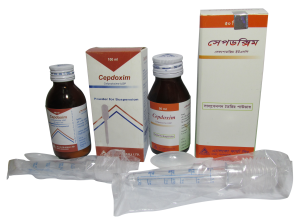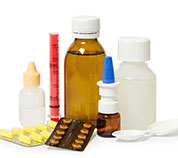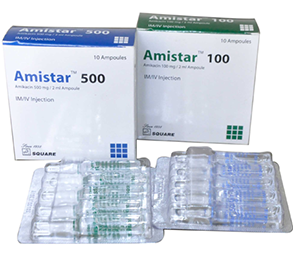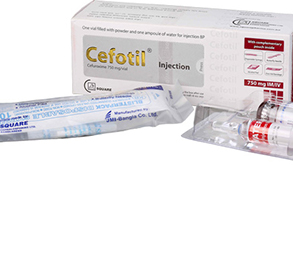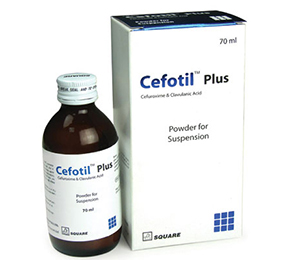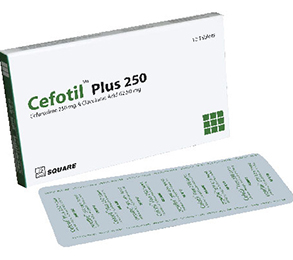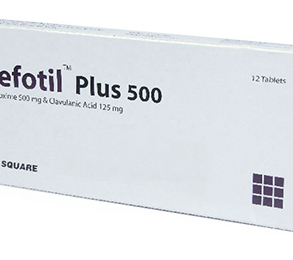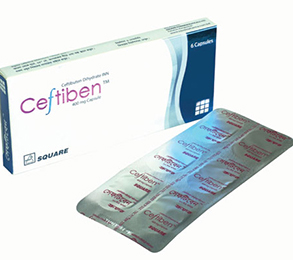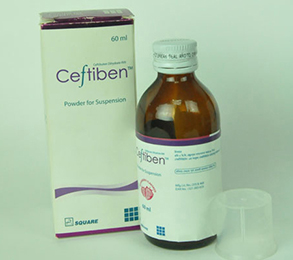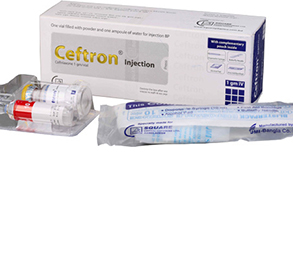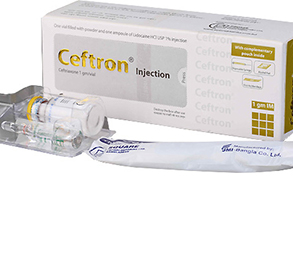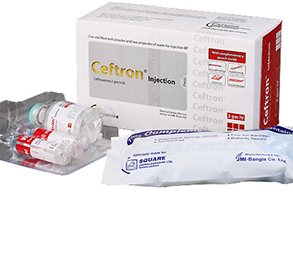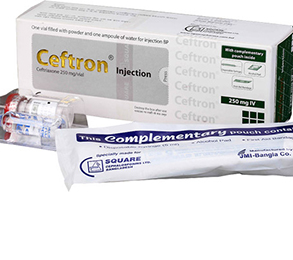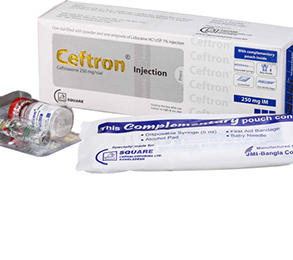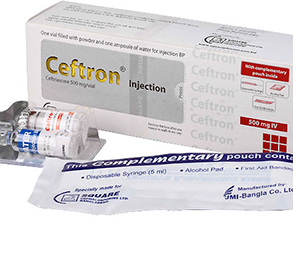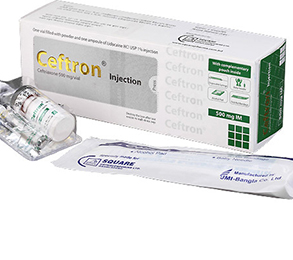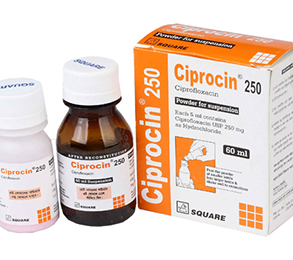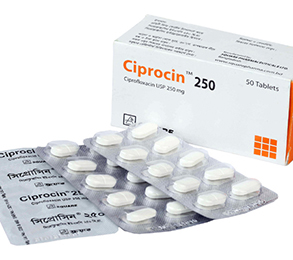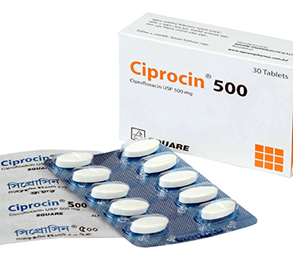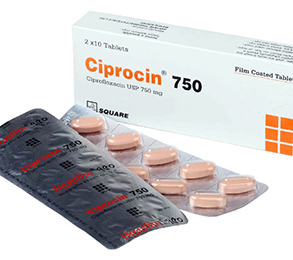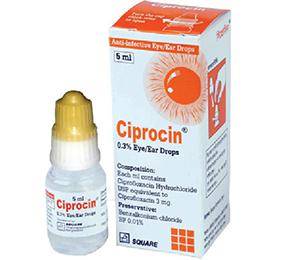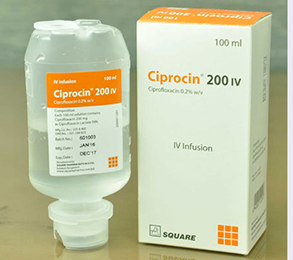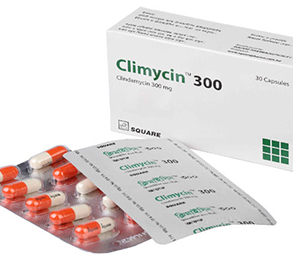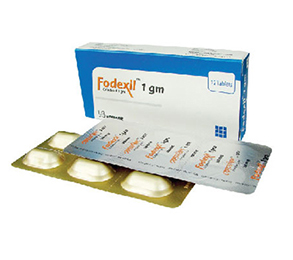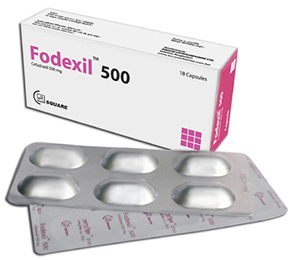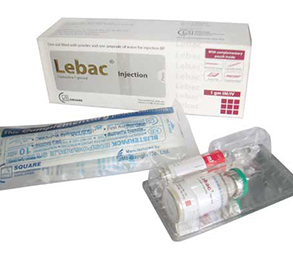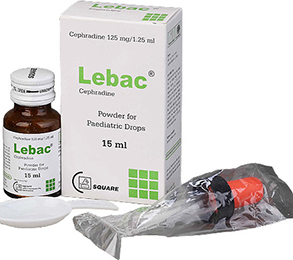Cepdoxim Suspension 40 mg/5 ml 1 Pc
Alternative products
Cefpodoxime Proxetil
Indications
Cefpodoxime is indicated for the treatment of infections caused by susceptible microorganism, listed below:
- Acute otitis media caused by Streptococcus pneumoniae, Streptococcus pyogenes, Haemophilus influenza, Moraxella catarrhalis (including beta-lactamase producing strains).
- Pharyngitis/tonsillitis caused by Streptococcus pyogenes.
- Acute maxillary sinusitis caused by Haemophilus influenzae (including beta-lactamase producing strains), Streptococcus pneumoniae and Moraxella catarrhalis.
- Community acquired pneumonia caused by S. pneumoniae or H. influenza (including beta-lactamase-producing strains).
- Acute bacterial exacerbation of chronic bronchitis caused by S. pneumoniae, H. influenzae (non-beta-lactamase-producing strains only), or M. catarrhalis.
- Skin and skin structure infections caused by Staphylococcus aureus, Streptococcus pyogenes.
- Uncomplicated urinary tract infections caused by E. coli, Klebsiella pneumoniae, Proteus mirabilis or Staphylococcus saprophyticus.
- Uncomplicated gonorrhea caused by Neisseria gonorrhoeae (including penicillinase-producing strains).
- Rectal gonococcal infections in women due to Neisseria gonorrhoeae (including penicillinase-producing strains).
Therapeutic Class
Third generation Cephalosporins
Pharmacology
Cefpodoxime is an oral 3rd generation cephalosporin, which has good stability to beta lactamases and activity against Gram negative and Gram positive bacteria. It is indicated for the treatment of infections either before the infecting organism has been identified. It is a prodrug its active metabolite is Cefpodoxime. Approximately 29 to 33% of Cefpodoxime excreted unchanged in the urine in 12 hours.
Dosage & Administration
Adults and Adolescents (13 years and older)
- Pharyngitis/tonsillitis: 100 mg 12 hourly, 5 to 10 days
- Acute maxillary sinusitis: 200 mg 12 hourly, 10 day
- Community acquired pneumonia: 200 mg 12 hourly, 14 days
- Acute bacterial exacerbations of chronic bronchitis: 200 mg 12 hourly, 10 days
- Skin and skin structure: 400 mg 12 hourly, 7 to 14 days
- Uncomplicated urinary tract infection: 100 mg 12 hourly, 7 days
- Uncomplicated gonorrhea: single dose of 200 mg
- Rectal gonococcal infections in women: single dose of 200 mg
Infants and Pediatric Patients (2 months to 12 years)
- Acute otitis media: 5 mg/kg body weight 12 hourly, 5 days
- Pharyngitis /tonsillitis: 5 mg/kg body weight 12 hourly, 5 to 10 days
- Acute maxillary sinusitis: 5 mg/kg body weight 12 hourly, 10 days
* চিকিৎসকের পরামর্শ মোতাবেক ঔষধ সেবন করুন'
Interaction
Cefpodoxime concomitant administration of high doses of antacids (sodium bicarbonate and aluminum hydroxide) or H2 blockers reduces peak plasma levels and the extent of absorption respectively. Renal excretion of Cefpodoxime is inhibit by probenecid.
Contraindications
Cefpodoxime is contraindicated in patients with known allergy to cephalosporins.
Side Effects
Cefpodoxime has very few side effects. Possible side effects include gastrointestinal disorders (such as- diarrhea, nausea, vomiting and abdominal pain), rash, urticaria and itching.
Pregnancy & Lactation
US FDA pregnancy category of Cefpodoxime is B. There is, however, no adequate and well-controlled study in pregnant women. Because animal reproduction studies are not always predictive of human response, this drug should be used during pregnancy only if clearly needed. Cefpodoxime have been shown to be excreted in human milk. So, caution should be exercised when Cefpodoxime is administered to a nursing woman.
Precautions & Warnings
In patients with transient or persistent reduction in urinary output due to renal insufficiency, the total daily dose of Cefpodoxime should be reduced. Cefpodoxime should be administered with caution to patients receiving concurrent treatment with potent diuretics. As with other antibiotics, prolonged use of Cefpodoxime may result in overgrowth of non-susceptible organisms.
Use in Special Populations
Patients with severe renal impairment (creatinin clearance <30 ml/min) the dosing intervals should be increased to 24 hourly. The dosage adjustment is not require in cases of hepatic impairment.
Reconstitution
Step 1: Shake the bottle well to loosen the powder.
Step 2: Add boiled and cooled water in the bottle.
Step 3: Shake until powder is completely mixed with water.
Storage Conditions
Keep in a dry place away from light and heat. Keep out of the reach of children.
- Type Suspension
- Tag
- Morbi leo risus
- Porta ac consectetur ac
- Vestibulum at eros
